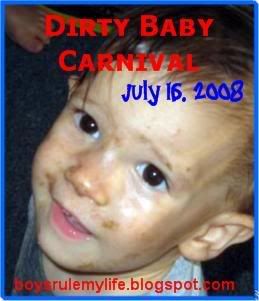I was buttering a piece of store-bought white bread when suddenly nostalgia had me gasping for air. I remember eating slice after slice of sandwich white or butter-top wheat at Grandma’s house, thickly coating it with the creamy, pale white butter. In those days, we ate margarine at our house–on dense whole wheat bread. Grandma’s bread was an unlikely feast for the senses. Pale butter against pale bread, so different from the garishly tinted margarine that covered our dark bread. I loved spreading the smooth, counter-warmed butter over the bread. I still can find nothing to compare it to. No friction, no resistance, no struggle to scrape the butter across. Just whisk your knife over the top and the butter magically follows, leaving behind an even path of silken scrumptiousness. It’s an ordinary sort of memory, but it took me back almost 20 years.
I sat on the kitchen floor with my bread and butter, waiting for my soup to heat up in the microwave, reading Laura Ingalls Wilder’s The Long Winter. That in itself invokes memories of days long past. The Long Winter was one of my favorite books growing up, and one of my favorite games to play was “Making hay while the sun shines”–pretending I was hoarding for a long winter of my own.
But I just happened to be reading the 22nd chapter, when Pa is reading to the family and Laura interrupts to ask for a song on the fiddle. Pa tried to oblige, “but every note from the fiddle was a very little wrong. Pa’s fingers were clumsy….’My fingers are too stiff and thick from being out in the cold so much, I can’t play,’ Pa spoke as if he were ashamed.” They put away the fiddle and Ma quietly asked her husband to help her with grinding some wheat in the coffee mill. At least that he could do. When Pa went out to finish the chores, Laura reflected, “The worst thing that had happened was that Pa could not play the fiddle. If she had not asked him to play it, he might not have known that he could not do it.”
In many ways, Pa was defined by his fiddling. Every book is filled with the songs that he played on his fiddle. He used the fiddle to cheer his family, to entertain his guests, and to worship his God. In the same way, my grandpa has been defined by his farming. He told me, not so long ago, that he doesn’t know how a man can farm and not know God. He said he couldn’t think of any chapel better than a field–looking up, knowing that you were completely dependent on God for the soil and the sun and the rain. My grandpa’s a farmer. I remember crawling between the wires of a barbed wire fence while my aunts struggled to pull the wires apart further. My grandpa always stretched the tightest fence in Northeastern Nebraska.
Within the last year, my grandpa’s many health problems have conspired to keep him from farming. Arthritis has stiffened his joints and made them uncooperative. Diabetes has made him dependent on insulin and caused him to lose most feeling in his feet. Heart disease means that he can’t keep up the pace he used to be able to. A stroke means that his body no longer immediately obeys his mind’s commands. Like Pa’s fingers, clumsy from the hard winter, my grandpa’s body can no longer do what it wants so much to do.
I think of it all, and I wish I could could go back and freeze time, for Grandpa at least. I wish that my grandpa could be forever worshiping from the middle of a field–a 7 day a week Christian who stretched tighter fences than anyone. I wish that my own children could see Grandpa taking joy in his work and in his family most of all. It’s not that he’s any less of a great man, or a great grandpa than he ever was–it’s just that he doesn’t seem to realize it. He’s discouraged, depressed, cast down by the weakness of his body. It’s not so much that I miss the fiddle, I just wish he didn’t know he couldn’t play. ‘Cause it’s so hard to see him weak.


















